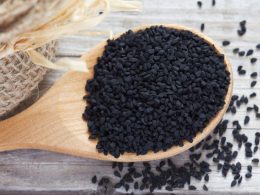Introduction:
In the pursuit of fitness and overall well-being, post-exercise nutrition plays a pivotal role. The moments after a workout are a crucial window for replenishing energy stores, repairing muscles, and optimizing recovery. However, achieving post-exercise precision requires a delicate balance between providing your body with the nutrients it needs and avoiding overeating. In this comprehensive guide, we’ll explore nine tips to help you navigate post-exercise nutrition effectively, enhancing your workout gains and promoting efficient recovery.
1. Hydration First:
Before delving into the specifics of post-exercise nutrition, it’s essential to prioritize hydration. Intense physical activity results in fluid loss through sweat, and replenishing these fluids is the first step to support your body’s recovery process. Water is essential for nutrient transport, temperature regulation, and overall bodily functions. Begin your post-exercise routine by rehydrating adequately.
2. Understand Your Caloric Needs:
While refueling is crucial, it’s equally important to understand your individual caloric needs. Calculate the calories burned during your workout and tailor your post-exercise nutrition to meet, but not exceed, this expenditure. Avoid the common pitfall of overeating, as consuming excessive calories can hinder your fitness goals and lead to unwanted weight gain.

3. Quality Protein Intake:
Protein is a cornerstone of post-exercise nutrition. Opt for high-quality protein sources to support muscle repair and growth. Lean meats, eggs, dairy products, and plant-based alternatives such as beans and tofu are excellent choices. Protein intake post-workout aids in the recovery process, helping your muscles rebuild and become stronger.
4. Ideal Carb-Protein Ratio:
Finding the right balance between carbohydrates and protein is crucial for effective recovery. Aim for a 3:1 or 4:1 carb-to-protein ratio in your post-exercise meal or snack. Carbohydrates replenish glycogen stores, the body’s primary energy source, while protein supports muscle repair. This optimal combination promotes efficient recovery and prepares your body for the next workout.
5. Nutrient Timing Matters:
The timing of your post-exercise nutrition is as important as the content. Aim to consume a well-balanced meal or snack within 30 to 60 minutes after completing your workout. During this window, your body is more receptive to nutrient absorption, maximizing the benefits of the nutrients you provide. Paying attention to nutrient timing enhances your body’s recovery capabilities.
6. Incorporate Healthy Fats:
While protein and carbohydrates often take center stage in post-exercise nutrition, don’t overlook the importance of healthy fats. Including sources of healthy fats, such as avocados, nuts, seeds, and olive oil, in your post-workout meal contributes to joint health and overall recovery. However, moderation is key, as fats are calorie-dense.
7. Personalize Your Plan:
Recognize that everyone’s nutritional needs are unique. Factors such as fitness goals, body composition, and workout intensity vary from person to person. Tailor your post-exercise nutrition plan to align with your specific requirements. A personalized approach ensures that you are providing your body with the right nutrients in the right quantities.
8. Listen to Your Body:
Your body often communicates its needs. Pay attention to signals of hunger, fullness, and energy levels. An intuitive approach to post-exercise nutrition involves listening to your body’s cues and adjusting your nutritional intake accordingly. This mindful practice helps you respond to the unique demands of your body after each workout.
9. Supplement Strategically:
While whole foods should form the foundation of your post-exercise nutrition, strategic supplementation can enhance recovery. Consider incorporating supplements like whey protein, branched-chain amino acids (BCAAs), or electrolyte blends into your routine. These supplements can complement your nutritional intake and support specific aspects of recovery.
Conclusion:
Post-exercise precision is not just about consuming calories; it’s a strategic approach to fueling your body for optimal recovery. By incorporating these nine tips into your post-workout routine, you can navigate the delicate balance between refueling and avoiding overeating. This precision-focused strategy will help you provide your body with the nutrients it needs to thrive, maximizing your workout gains and supporting efficient recovery.
Remember that the journey to fitness is a personalized one. Experiment with different approaches, observe how your body responds, and fine-tune your post-exercise nutrition plan accordingly. With post-exercise precision, you can elevate your fitness journey, promote efficient recovery, and propel yourself toward your fitness goals with confidence and vitality. Whether you’re a seasoned athlete or just starting your fitness journey, these tips provide a comprehensive guide to optimizing your post-exercise nutrition for sustained well-being and performance.












